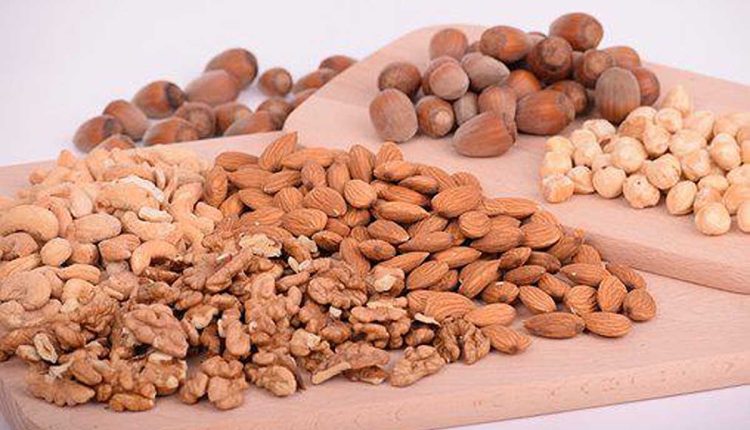Contrary to what many assume, successful growth and putting on in bodybuilding do not occur solely from the work and energy put out in the gym. Your time during a workout session is extremely important because it is fundamental within the process and often creates the stimulus that causes growth in addition to development. What you feed on and your nutritional intake is equally as essential and even more so.
You will discover three common questions expected by new bodybuilders as well as people who are having difficulty with body weight:
What should I eat?
The amount should I eat?
How often is what exactly eaten?
In this article, we will deal with the first question. What should I feed on?
You should construct your diet while using the fundamental premise that the significantly less processed your food, the more vitamins, and minerals. The simple logic here is that will although processed foods taste great, they typically contain significant levels of fat, sodium, cholesterol, and sometimes some pretty unpleasant chemical additives that, in the end, don’t do us good in the long run.
Having said that, allow me to backside pedal a bit and confess I understand that ideally, that always does not fit into our active lifestyles or budgets, it is, therefore, what it is, and we could work around it. No one must be a tree-hugging, macrobiotic vegetarian.
Therefore, you want to aim for a well-rounded diet regime that supplies the number of unhealthy calories you need to grow without turning an individual into a tub of lard with biceps. (You have witnessed the guys that fit this specific description. Every gym includes a few of them). We usually are essentially looking for servings built around an excellent method to obtain protein complemented using good clean low glycemic carbohydrates.
This may wipe out some people the wrong way, but My goal is to say it anyway. In the event you eat according to conventional imagined patterns and try to get a placed number of helpings or amounts every day from the 4, a few or seven essential as well as healthy food groups (it improvements depending on which guru is preaching to you) then chances are you will not get enough health proteins for your needs and will end up getting fats, and just to set the file straight, getting fat is not the same as bulking up.
Excellent Solid Weight Gain
As a bodybuilder participant, or just someone trying to attain good solid muscle mass, you must get all the essential nutrients. You must be intelligent about how you get these nutritional values everywhere. You have to get what you need to raise without getting what will make you fat.
A good way of illustrating this is to compare it to a man with an intestinal problem that will require that they get an above-average level of fiber every day. They can take in 5 boxes of cereal, or they can take a fiber supplement. Both will offer the amount of fiber, but a few boxes of cereal will blow them up, similar to a beached whale. The same principle applies to you as a weight lifter.
You need to get the right calories to sustain very good weight gain. Still, your calorie intake needs to consist of suitable types and the number of proteins, carbohydrates, and other sources of minerals and vitamins. So we must be selective concerning where we get our necessary protein, carbs, vitamins, and minerals.
Why don’t we get a little more specific because we still have not responded to the question?
The critical component of every meal can be quite a complete protein. A complete necessary protein is a protein that contains the primary amino acids that your muscles demand to repair and progress. This can be obtained from meat, fish species, eggs, whey protein supplements, and some legumes like lentils. Of course, other foods offer protein, but for our uses, we need food that has a substantial ratio of protein, looking at weight and total fat-laden calories.
A good rule of thumb, which I use, is to look for foodstuff that has 18 or more Gary of protein per 75 – 130 grams connected with weight or 18 if not more grams of protein every 150 calories. The foods above are all very close to that relation. The only exception is the lentil, which carries a slightly bigger calorie count but, originating from a protein-to-weight view, remains comparable to meat and fish. This ratio as a guide allows you to get more healthy proteins with less fat, fat-laden calories, and carbs.
If you attempted to get your total daily health protein requirements from foods with lesser protein to pounds or protein to kcal ratios, you would be required to eat several thousand calories daily just to get the protein you would like. The net result could be that you will eventually become your gym’s fat guy….. having big arms.
You need to have a low glycemic carb along with the necessary protein. You need carbohydrates to gas your brain and provide a secure, usable energy source. Of course, you might only eat protein, but many people do it. You need the particular protein for muscle progress, and the right quantities and also types of carbohydrates spare the particular protein so it can be used for muscle growth and not end up being consumed as a source of energy or fuel.
Your aim is always to put on good solid excess weight as quickly as possible, and starving yourself of carbohydrate supply is not going to do this.
Along with healthy proteins and carbohydrates, you need reasons for vitamins and minerals. You can obtain these from leafy greens, vegetables, and a host connected other foods; however, all over again, the key here is to equilibrium the calorie penalty for the nutritional benefit. I have found that I will use a good multivitamin and also mineral supplement gets myself around this. Even if you choose to use the maximum amount of whole foods possible, I recommend adding an excellent multivitamin and mineral dietary supplement to your diet; however, the decision remains yours.
Good With all the Bad
Whole milk, other dairy food, legumes, grains, and very good fats and oils are excellent for you in moderation. I answer this because each has a calorie and fat fine that can sometimes outweigh many benefits. Now I can just notice some of you are gasping. I am not telling you you do not need them or they may not suit you. What I am expressing is that depending on your calorie needs, determined by several elements such as your lean body mass, your metabolic rate, age, how much difficulty you are working out, and other special requirements, you may find that the unhealthy calories that come with bread, cheeses, Plata, etc. can negatively affect you.
So in many cases, some of you could choose to replace the nutritional parts supplied by these foods with a dietary supplement-based source. Yes, I am aware whole food is better than supplements and potions but remember, at the very start, I told me we live on a real planet, and it is what it is. The decision is yours. Take the path functions for your lifestyle and targets.
To summarize, your meals should be energy, fat, and sugar aware. They should consist of an excellent way to obtain protein that will give you between 30 and 50 grams of protein per meal and an excellent low glycemic carbohydrate supply that provides a stable energy source. Additionally, you should include enough other foods or supplements to offer the necessary vitamins and minerals that you do not comes from the protein and carb components of your meal.
Read also: https://popthatrocks.com/category/food/


